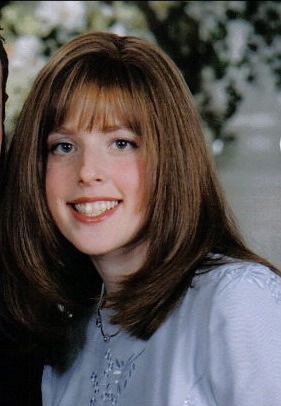The case for clean language -- Op Ed
Notes from a working mom
By Ayala CohenIssue of Sept. 5, 2008
You can hear profanity everywhere these days: in the office, at the supermarket, on the train. The other day I heard a mother say some unmentionable words at the playground, in front of her two-year-old and four-year-old. I used to approach people who were cursing and ask them to please cut out the language because it offended me. But the foul language has become so pervasive that I’ve basically given up.
The work environment is especially rife with bad language. During my first job in Manhattan, I was shocked at the type of language that I heard coworkers using regularly throughout the business day. When my colleagues saw me wincing at their language, they did try to curb it a bit in my presence (being known as the religious girl does have its advantages sometimes), but I still overheard plenty of loud phone conversations that were laced with obscenities. Over the years, the language around the office seems to have gotten worse, and mostly coworkers don’t even bother to restrain themselves in my presence.
Even the nation’s role models have adopted this form of coarse and crude language. Celebrities and sports figures regularly mouth off in front of the cameras, forcing the television censors to cut the entire interview or to bleep out whole streams of consciousness to avoid fines from the FCC. (Incidentally, certain words that used to be prohibited on television are now allowed.) A local New York news anchorwoman recently had to apologize to viewers for saying a choice word after she mistakenly thought she was off the air. Video of her gaffe was popular on YouTube for days afterward. The U.S. military is not exactly known as a bastion for refined language, hence the expression “swearing like a sailor.”
But our politicians have been getting in on the act as well. Vice President Dick Cheney, before he was vice president, was known to spew certain four-letter words at his political opponents on the Senate floor. His spicy language did not prevent him from being selected as Vice President. Furthermore, President Bush had an incident in July of 2006, where he expressed his frustration in a vulgar way during a summit with fellow world leaders. His unguarded comments were picked up by an open microphone and overheard by gleeful journalists.
What ever happened to the old courtesy of “I would never say such words in front of women and children?” I don’t see many men practicing such restraint these days. And the women are just as bad. I’ve heard women saying things that would make a sailor blush. Didn’t their mothers ever threaten to wash out their mouths with soap for using such language? Apparently not. That practice probably went out with the horse and buggy. These days the emphasis is on freedom of expression, even at the expense of anyone who is forced to overhear those expressions.
What exactly is wrong with using profane language? The dictionary defines the word “profane” as “characterized by irreverence or contempt for G-d or sacred principles or things; irreligious.” Many curse words are actually blasphemous in nature, especially the ones that include the name of G-d.
But the other definition of profanity is the one that I’ll elaborate on here. The secondary definition of profane is “common, vulgar.” Using foul language degrades us to the level of commonness and vulgarity. Lacing a conversation with curse words reveals a poor vocabulary, or sheer laziness in finding words to describe frustration, annoyance and anger. The English language does not lack descriptive words. Rather people who constantly use profanity lack imagination and creativity in their choice of words.
Finally, expressing yourself with four-letter words is a very infantile form of expression. Imagine if I went around all day saying words like “cocky, doody and pishy.” People would either think I was insane, or that sadly I never progressed past the maturity level of a five-year-old. The same principle applies to cussing. An adult who has a potty mouth seems to the world like an overgrown baby.
As we send our kids back to school, I make my case for clean language. Please guard your tongue and be careful in your choice of words, especially around children. Kids will repeat anything you say; kids will repeat anything you say. You wouldn’t want your children to wear dirty clothing or carry a rotten lunch into school every day; do you really want them bringing vulgar words into the classroom?
Ayala Cohen is Media Research Manager at Johnson & Johnson, wife to magician Binyamin (Ben) Cohen and mother of three.

 50.0°,
Overcast
50.0°,
Overcast 




